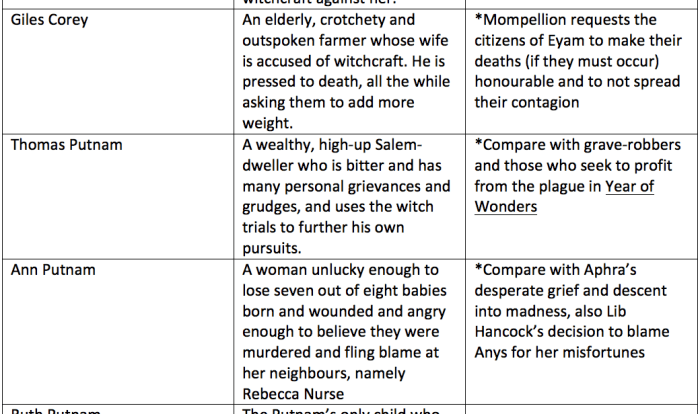Embark on a sort of Trojan Odyssey, where we delve into the timeless epic’s profound impact on Western culture, exploring its enduring themes, complex characters, and transformative journey of self-discovery.
From the battlefield of Troy to the shores of Ithaca, the Odyssey captivates with its intricate tapestry of adventure, heroism, and human frailty, inviting us to navigate the complexities of life’s own epic voyage.
A Sort of Trojan Odyssey
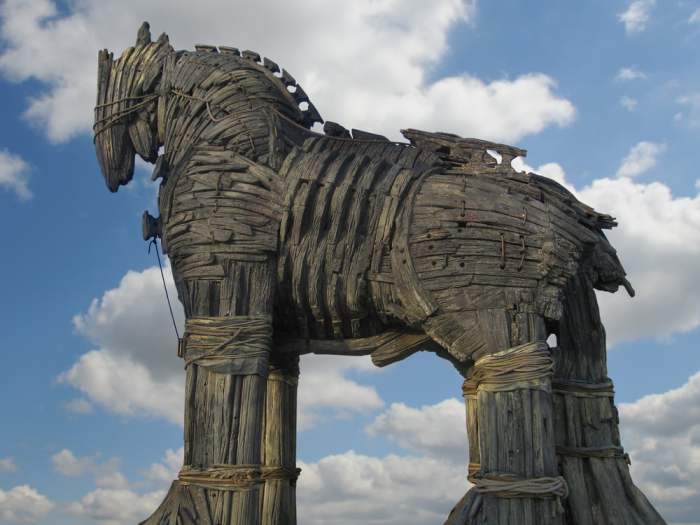
Concept of an ‘Odyssey’
An ‘odyssey’ refers to an extended journey or quest, typically fraught with trials and tribulations. In the context of the Trojan War, the Odyssey chronicles the epic journey of Odysseus, the resourceful and cunning king of Ithaca, as he attempts to return home after the war’s end.
Key Themes and Motifs
The Odyssey explores profound themes such as:
- The perils and challenges of a long and arduous journey.
- The importance of resilience, adaptability, and cunning in overcoming obstacles.
- The complex interplay between fate, free will, and divine intervention.
- The themes of loyalty, betrayal, and the bonds of family and comradeship.
Influence on Western Literature and Culture
The Odyssey has had a profound impact on Western literature and culture, inspiring countless works of art, literature, and music. Its influence can be seen in:
- Epic poems and novels, such as Dante’s Inferno and James Joyce’s Ulysses.
- The development of the concept of the hero’s journey, as exemplified in Joseph Campbell’s seminal work, “The Hero with a Thousand Faces.”
- The use of mythological and literary allusions in literature, film, and other artistic mediums.
The Character of Odysseus
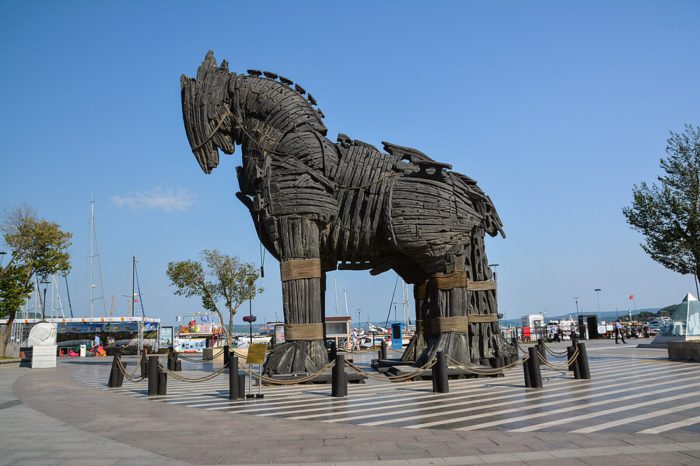
Odysseus, the enigmatic protagonist of Homer’s Odyssey, is a multifaceted character who embodies both the strengths and flaws of humanity. His journey home from the Trojan War is a testament to his resilience, cunning, and resourcefulness, yet it also reveals his capacity for deceit and self-preservation.
Challenges and Obstacles
Odysseus’s journey home is fraught with perils and obstacles. He faces the wrath of Poseidon, who curses him after Odysseus blinds the god’s son, Polyphemus. This curse delays his return and leads to the loss of his companions. Additionally, Odysseus must contend with the allure of Calypso’s island, where he spends seven years as a captive.
Fate and Destiny
Odysseus’s journey is heavily influenced by fate and destiny. The gods, particularly Zeus and Athena, intervene in his favor, guiding him through treacherous situations. However, Odysseus’s own choices and actions also shape his destiny. His decision to blind Polyphemus, for example, incurs Poseidon’s wrath, while his cunning and intelligence allow him to overcome numerous obstacles.
The Symbolism of the Odyssey
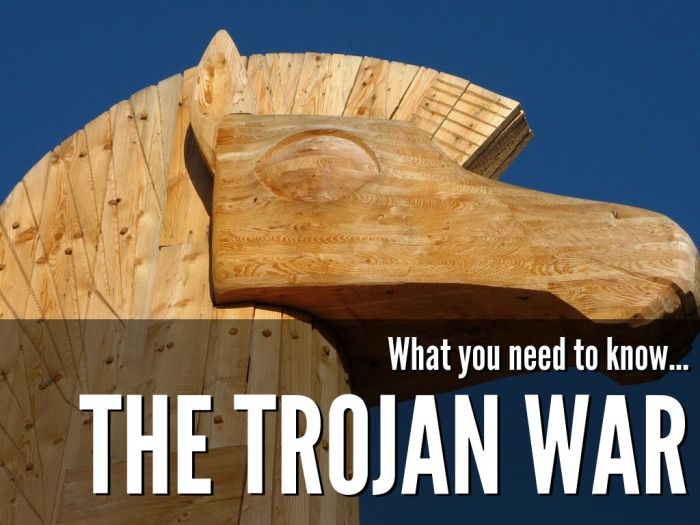
The Odyssey, an epic poem attributed to Homer, transcends its literal narrative to embody a profound allegory of human existence. Its titular journey, undertaken by the resourceful Odysseus, mirrors the transformative voyage of self-discovery that all individuals embark upon.
Throughout the epic, Odysseus encounters a myriad of obstacles, both physical and psychological, which symbolize the challenges we face in our own lives. His encounters with mythical creatures and treacherous landscapes represent the trials and tribulations that test our limits and shape our character.
Key Symbols and Their Significance
- Ithaca:Odysseus’s homeland represents the ultimate goal of the journey, the destination we all strive to reach, whether it be physical, emotional, or spiritual.
- The Cyclops:The one-eyed giant symbolizes the dangers of unchecked power and violence, reminding us of the importance of self-control and compassion.
- The Sirens:These alluring creatures represent the temptations and distractions that can lead us astray from our path.
- Circe:The sorceress who transforms Odysseus’s men into swine represents the power of both enchantment and disenchantment, reminding us that our choices can have profound consequences.
The Transformative Power of Odysseus’s Experiences
Through his trials and tribulations, Odysseus undergoes a profound transformation. He learns the value of perseverance, cunning, and resilience. His encounters with gods and goddesses teach him the importance of humility and respect for the divine. Ultimately, his journey back to Ithaca is not merely a physical return but a symbolic rebirth, a testament to the transformative power of self-discovery.
The Odyssey in Modern Adaptations: A Sort Of Trojan Odyssey
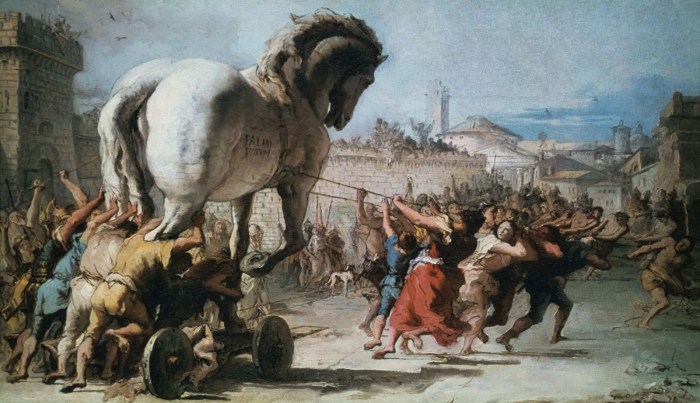
The Odyssey, with its timeless themes and epic scope, has captivated audiences for centuries. Modern adaptations continue to reimagine the classic epic, resonating with contemporary audiences through diverse artistic expressions.
Film Adaptations
Films such as the Coen brothers’ O Brother, Where Art Thou?(2000) and Brad Bird’s The Incredibles(2004) draw parallels between the Odyssey’s journey and modern settings, exploring themes of family, identity, and the search for home.
Literature Adaptations
Contemporary literature reinterprets the Odyssey through diverse perspectives, including Margaret Atwood’s The Penelopiad(2005) from Penelope’s point of view and Salman Rushdie’s Midnight’s Children(1981), which incorporates elements of the epic into a postcolonial Indian context.
Art Adaptations
Visual artists also draw inspiration from the Odyssey. Installations such as Theaster Gates’ “The Black Vessel” (2017) explore the themes of displacement and home, while paintings like George Condo’s “Odysseus” (2010) depict the hero’s journey with a modern twist.
The Odyssey’s Impact on Art and Literature
The Odyssey has inspired countless works of art and literature throughout history. From ancient Greek pottery to modern novels, the epic poem has left an enduring mark on Western culture.
A sort of Trojan odyssey could involve a series of challenges and obstacles that need to be overcome. One such challenge could be finding the right information on deduct for 1 1/2 emt 90 . This information could be crucial for completing the odyssey, and finding it can be a challenge in itself.
Once this challenge is overcome, the odyssey can continue, with the hero facing new challenges and obstacles along the way.
Portrayal of the Odyssey in Different Artistic Mediums
| Medium | Characteristics | Examples |
|---|---|---|
| Literature | – Retellings of the original story
|
– James Joyce’s Ulysses
|
| Painting | – Depictions of key scenes from the epic
|
– Nicolas Poussin’s The Embarkation of Ulysses
|
| Sculpture | – Statues of Odysseus and other characters
|
– The Laocoön and His Sons (depicting the Trojan War)
|
| Film | – Direct adaptations of the epic
|
– The Odyssey (1997)
|
| Music | – Operas based on the Odyssey
|
– Claudio Monteverdi’s Il ritorno d’Ulisse in patria
|
The Odyssey’s Contribution to Mythology
The Odyssey, an epic poem attributed to Homer, is a seminal work in Western literature. Beyond its captivating narrative, the epic holds immense significance for its profound contribution to mythology, shaping the perception of gods, heroes, and monsters in ancient Greek culture and beyond.
The Odyssey introduces a pantheon of deities, each with distinct powers and domains. Zeus, the king of the gods, wields the power of thunder and lightning. Athena, the goddess of wisdom and war, guides Odysseus throughout his journey. Poseidon, the god of the sea, poses obstacles and challenges for the hero.
These gods play crucial roles in the epic’s plot, influencing the characters’ fates and shaping the course of events.
Heroes and Monsters
The Odyssey features a diverse cast of heroes and monsters, each embodying unique traits and symbolizing different aspects of human nature. Odysseus, the protagonist, is a cunning and resourceful hero who overcomes numerous challenges on his journey home. His cunning and resilience make him a paragon of human perseverance.
The Odyssey also introduces formidable monsters, such as the Cyclops, a one-eyed giant who imprisons Odysseus and his men; the Sirens, enchanting creatures whose songs lure sailors to their doom; and Scylla and Charybdis, sea monsters that threaten Odysseus’s ship.
These monsters represent the perils and obstacles that humans must face in their lives.
The relationship between mythology and the Odyssey’s narrative is symbiotic. The epic draws upon existing mythological traditions, incorporating gods, heroes, and monsters into its story. At the same time, the Odyssey itself has significantly shaped the mythology of ancient Greece, enriching and expanding the pantheon of deities and the cast of mythological characters.
The Odyssey’s Influence on Language and Literature: Epic Vocabulary and Storytelling
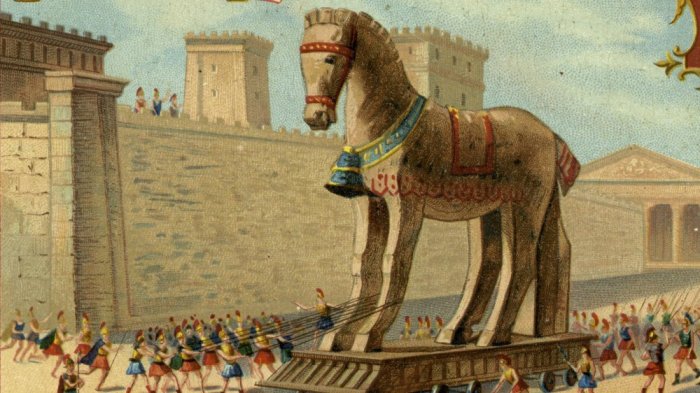
The Odyssey, with its epic scope and enduring themes, has left an indelible mark on the English language and literature. Its influence is evident in the vocabulary, storytelling techniques, and literary conventions that have shaped subsequent works.
Key Vocabulary Terms and Phrases, A sort of trojan odyssey
The Odyssey introduced numerous words and phrases that have become ingrained in our language, including:
- Epic: A long narrative poem that recounts the adventures of a legendary hero.
- Odyssey: A long, adventurous journey, often filled with challenges and obstacles.
- Ithaca: A symbol of home, a place of longing and eventual return.
- Penelope: A symbol of faithfulness and patience.
- Sirens: Enchanting creatures who lure sailors to their deaths with their sweet singing.
These terms have taken on metaphorical meanings, enriching our vocabulary and providing evocative imagery for poets and writers.
Etymological Origins and Literary Significance
Many of the vocabulary terms from the Odyssey have Greek origins, reflecting the poem’s ancient roots. For instance, the word “epic” comes from the Greek “epos,” meaning “word” or “song.” The term “Ithaca” derives from the Greek “Ithake,” the name of Odysseus’ homeland.
These etymological connections enhance the words’ literary significance, linking them to the rich cultural heritage of the ancient Greeks.
Impact on Subsequent Literature
The Odyssey’s influence on literature is immeasurable. Its storytelling techniques, such as the use of flashbacks, foreshadowing, and the epic hero’s journey, have been adopted by countless authors. The poem’s themes of loyalty, courage, and perseverance have resonated with readers throughout the ages, inspiring works from Virgil’s Aeneid to James Joyce’s Ulysses.
Essential Questionnaire
What is the significance of the Odyssey’s journey?
The Odyssey’s journey symbolizes the human quest for identity, home, and self-understanding, representing the trials and tribulations we encounter on our own life’s journey.
How does Odysseus embody the concept of a complex hero?
Odysseus is a multifaceted character, both cunning and resourceful, yet flawed and vulnerable. He embodies the complexities of human nature, showcasing both strengths and weaknesses.
What is the allegorical nature of the Odyssey?
The Odyssey can be interpreted as an allegory for the human condition, with its trials and obstacles representing the challenges we face in our own lives. It offers insights into the power of perseverance, resilience, and the transformative nature of experience.
